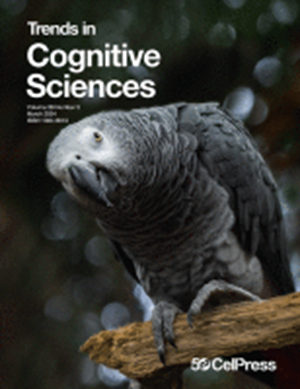社会将如何看待人工智能意识?动物案例的教训。
IF 17.2
1区 心理学
Q1 BEHAVIORAL SCIENCES
Trends in Cognitive Sciences
Pub Date : 2025-08-01
Epub Date: 2025-06-24
DOI:10.1016/j.tics.2025.06.002
引用次数: 0
摘要
社会将如何回应人工智能(AI)可能具有意识的想法?借鉴动物意识感知的经验教训,我们强调了塑造人工智能意识感知的心理、社会和经济因素。这些见解可以为有关人工智能道德地位、伦理处理和未来政策的新兴辩论提供信息。本文章由计算机程序翻译,如有差异,请以英文原文为准。
What will society think about AI consciousness? Lessons from the animal case.
How will society respond to the idea that artificial intelligence (AI) could be conscious? Drawing on lessons from perceptions of animal consciousness, we highlight psychological, social, and economic factors that shape perceptions of AI consciousness. These insights can inform emerging debates about AI moral status, ethical treatment, and future policy.
求助全文
通过发布文献求助,成功后即可免费获取论文全文。
去求助
来源期刊

Trends in Cognitive Sciences
医学-行为科学
CiteScore
27.90
自引率
1.50%
发文量
156
审稿时长
6-12 weeks
期刊介绍:
Essential reading for those working directly in the cognitive sciences or in related specialist areas, Trends in Cognitive Sciences provides an instant overview of current thinking for scientists, students and teachers who want to keep up with the latest developments in the cognitive sciences. The journal brings together research in psychology, artificial intelligence, linguistics, philosophy, computer science and neuroscience. Trends in Cognitive Sciences provides a platform for the interaction of these disciplines and the evolution of cognitive science as an independent field of study.
 求助内容:
求助内容: 应助结果提醒方式:
应助结果提醒方式:


